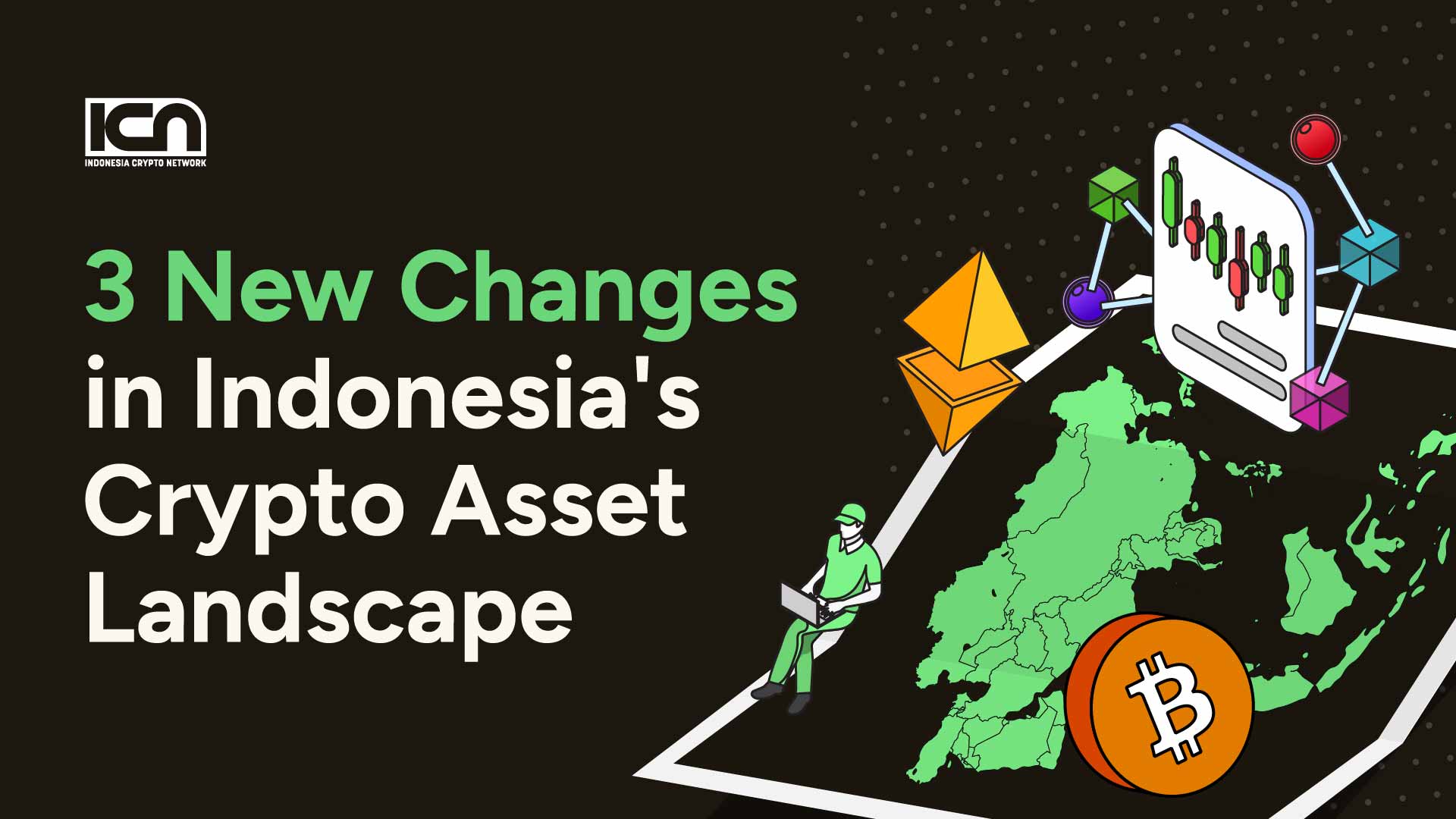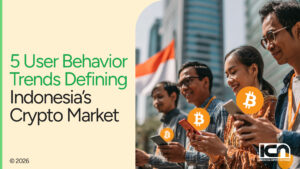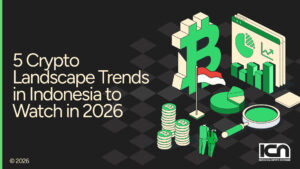Indonesia has secured the 7th spot in the 2023 Chainalysis Global Crypto Adoption Index. This ranking is indicative of the nation’s increasing participation in digital assets. Indonesia also took the lead in a transformative shift within its cryptocurrency landscape, marked by groundbreaking regulations and technological advancements. This article delves into Indonesia’s evolving crypto landscape, exploring shifts from redefined supervision to the introduction of a new digital currency.
A Regulatory Paradigm Shift: From BAPPEBTI to OJK
A recent regulatory shift in supervising crypto activities in Indonesia will transition from Commodity Futures Trading Supervisory Agency (Bappebti) to the Financial Services Authority (OJK), based on UU P2SK.
This shift, overseen by Hasan Fawzi from OJK as the Chief Executive of Financial Sector Technology Innovation Supervisory (ITSK), involves Fawzi’s comprehensive master plan covering aspects such as supervision, legal confirmation, licensing, and the promotion of innovation.
Currently, OJK is coordinating with Bappebti to transfer regulatory and supervisory responsibilities for digital financial assets, including crypto assets. Additionally, OJK is collaborating with the Central Bank (Bank of Indonesia) to discuss the regulation and supervision of ITSK, aligning with their respective jurisdictions as specified in the Law (UU P2SK). The transition of crypto and digital assets supervision from Bappebti to OJK is expected to be finalized by 2025.
The Birth of Key Crypto Market Institutions
In July 2023, Indonesia established a crypto ecosystem with the formation of PT Bursa Komoditi Nusantara, PT Kliring Berjangka Indonesia, and PT Tennet Depository Indonesia as key players. These institutions, serving as the crypto asset bourse, clearing house, and custodian, represent a significant stride toward creating a more organized and secure crypto trading environment.
To become a part of Bursa Komoditi Nusantara, also well-known as the Indonesia crypto exchange, crypto asset broker candidates need to apply. Once the application is submitted, brokers have one year to fulfill the requirements, including a minimum capitalization of IDR 100 billion and adherence to specified standard operating procedures. Currently, 29 out of 32 crypto asset brokers have become members of the Indonesian crypto exchange.
These institutions play crucial roles in enhancing transaction security, managing risks, and ensuring compliance with regulations. This step not only strengthens the market’s infrastructure but also boosts investor confidence and ensures market integrity.
Project Garuda: The Advent of Digital Rupiah
Bank Indonesia’s ambitious “Project Garuda” marks the nation’s foray into digital currencies. The development of the Digital Rupiah demonstrates Indonesia’s commitment to keeping pace with global financial trends.
Bank Indonesia Governor Perry Warjiyo stated that the strategy for the Digital Rupiah will involve a phased implementation, starting with financial institutions and gradually expanding to daily financial transactions. The project aims to culminate in the integration of a retail Central Bank Digital Currency (CBDC). This endeavor positions Indonesia as a pioneer in the digital currency landscape of the ASEAN region.
Challenges and Opportunities
The transition to OJK supervision and the introduction of the Digital Rupiah bring both challenges and opportunities. Regulatory changes require market players to adapt to new norms and compliance standards. Meanwhile, the Digital Rupiah’s introduction tests the readiness of Indonesia’s financial infrastructure to embrace digital transformation. However, these changes also present opportunities for growth, innovation, and enhanced financial inclusivity. The Digital Rupiah, in particular, has the potential to revolutionize payment systems and promote greater financial accessibility.
Conclusion
2023 stands as a transformative year for Indonesia’s crypto asset landscape. The regulatory transition to OJK and the development of key crypto market institutions, coupled with innovative strides in digital currency, reflect a comprehensive approach towards a modern and secure financial ecosystem. These changes showcase Indonesia’s commitment to adapting to the evolving demands of the digital age, laying a solid foundation for future growth and stability in the financial sector.




